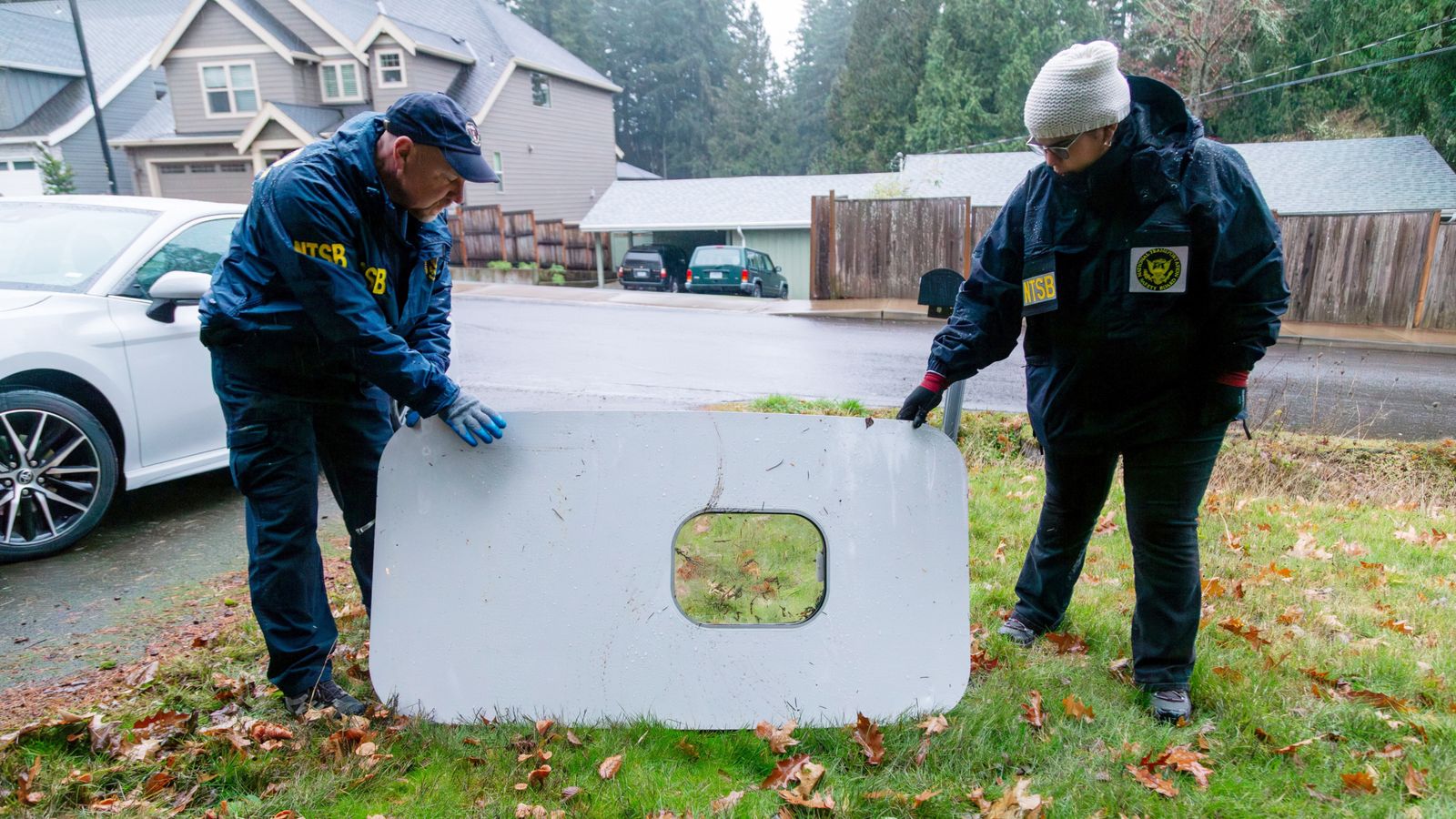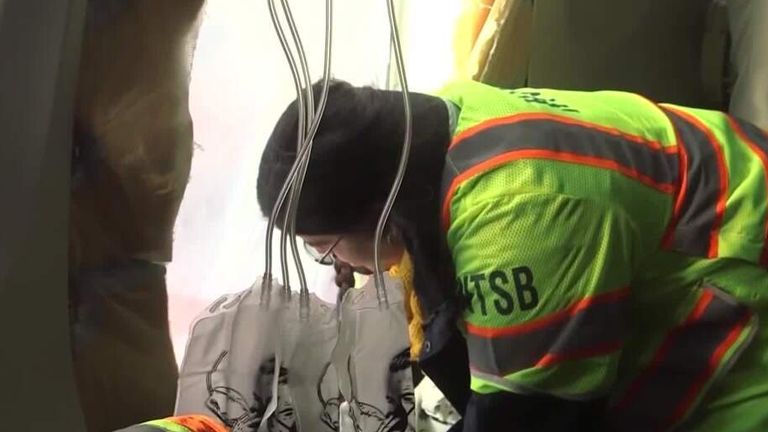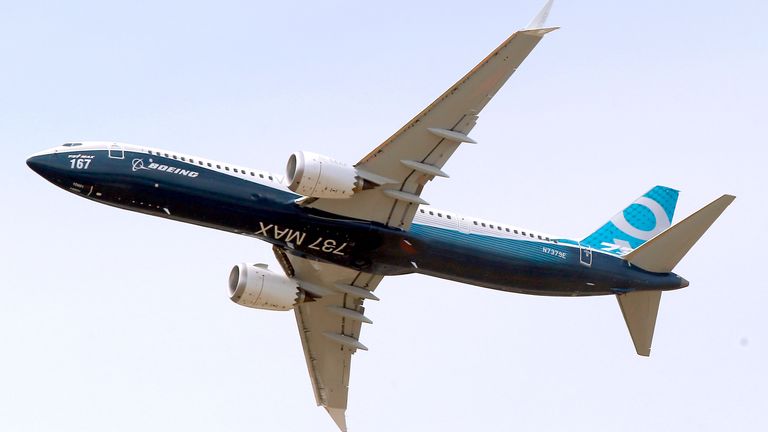US flight safety regulators are to intensify their scrutiny of Boeing in the wake of the mid-air panel blowout a week ago aboard one of the company’s planes.
The announcement was made by a top Federal Aviation Administration (FAA) official who is working on the investigation into the scare aboard the Alaska Airlines flight on 5 January.
The incident led to all 737 MAX 9 aircraft fitted with an emergency exit door panel replacement being grounded pending the outcomes of work by the FAA and other transport safety experts.
FAA administrator Mike Whitaker told Sky’s US partner CNBC that the MAX 9 had “significant problems”.
Money latest – The cleverest way to maximise annual leave
“We believe there are other manufacturing problems,” he added without elaborating.
Boeing was yet to comment.
The blowout reignited concerns about the company’s recent track record on safety that was decimated in the wake of two fatal crashes involving MAX 8 aircraft in 2018 and 2019.
A total of 346 people lost their lives.
The MAX 8 fleet was grounded globally for almost two years while work was completed to correct faulty flight control software that was blamed for both crashes, one in the Java Sea off Indonesia and the other in Ethiopia.
Boeing’s current chief executive Dave Calhoun has admitted that a “quality escape” had taken place with the MAX 9, and he was working hard with aviation officials to ensure no repeat of the malfunction.
The planes are expected to remain grounded until all checks have been completed and a preliminary report compiled by safety experts.
That could yet take several weeks.
Ryanair boss Michael O’Leary told the Reuters news agency on Thursday that the airline had witnessed “minor issues” with the quality control in new MAX 8 aircraft on delivery to Europe, and called on Boeing to bolster its processes.
The no-frills carrier does not operate any MAX 9 planes.
The FAA’s additional work is to include an audit to ensure compliance with approved quality procedures.
The regulator said the results would determine if additional work was necessary.
The FAA said it would also re-examine its decision to delegate some responsibilities to Boeing and consider moving some functions under independent, third-party entities.
“The grounding of the 737-9 and the multiple production-related issues identified in recent years require us to look at every option to reduce risk,” Mr Whitaker said in a statement.
Alaska and United Airlines, the other major US carrier to operate the MAX 9, have reported finding loose parts on multiple planes covered by the grounding order.


